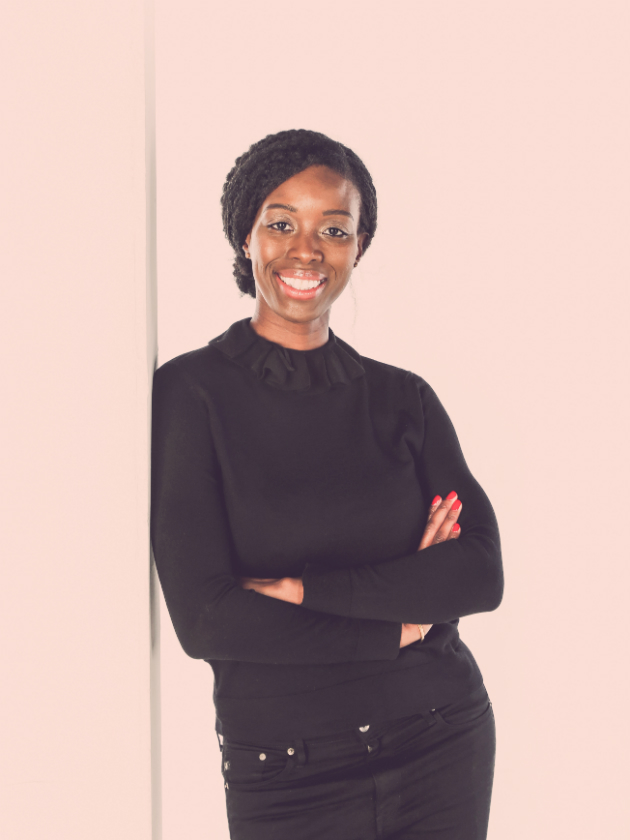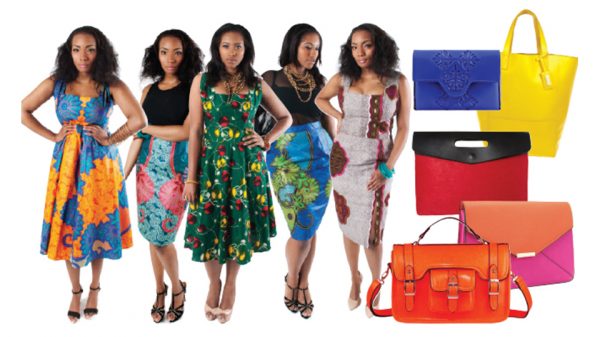Davinia Tomlinson, the founder of woman-focused investment service rainchq, tells Nicole Vassell about the importance of facing hard truths with your money
So the New Year celebrations have long concluded, and while many of us may have spent the first couple of weeks focused on money-saving, the optimism with which we started 2020 may have started to fade, or be a distant memory altogether. However, there’s never a bad time to refocus, and put the concept of financial stability and thinking about the future of our pockets as a high priority; Davinia Tomlinson is doing what she can to make this a reality.
Research by the Chartered Institute of Insurance shows that the average 65-year-old UK woman retires with a pension pot of £35,800; a fifth of the size of the average UK man. While this can vary, depending on career and whether you have a spouse whose pension pot you can share, this remains a sobering statistic. Once the £35,800 runs out, what happens to women after we retire from work?
Having had a successful career in financial investment for over 15 years, Tomlinson has long been aware of the gender imbalances in the discussion of personal wealth. Even in her first graduate job at one of the world’s largest asset managers, she was instantly aware of the overwhelmingly dominant male presence in the world of investment banking.
‘It was quite clear, looking around the industry at large, that women were hugely underrepresented,’ she explains. ‘Not just within the client base, but even on the floor within the organisation – on the graduate scheme, there were a dozen of us, and I was one of three women, and of course the only Black woman.’
Though she didn’t know it at the time, the first seeds for her business idea were being planted, and in November 2018, she launched her company with a clear objective to help women take control of their financial futures: rainchq. With its name nodding towards the concept of saving for a ‘rainy day’, the company is focused on giving women power over their money, through education and support.

While rainchq provide tools and resources that everyone can benefit from, Tomlinson’s decision to have her company specifically focused on women’s needs is due to the ways that women have been left out of the conversation until now. Career changes impacted by motherhood (ie. switching from full-time to part-time work, or changing positions altogether), as well as a gender investing gap – the fact that women are more likely to save in cash rather than in the stock market – are things that go unaddressed with other finance management services, where men’s experiences are classed as the default.
‘Rainchq,’ Tomlinson explains, ‘puts women at the centre of the conversation without it having to be branded in pink, or have everything related to luxury purchases like shoes. It just needs to be communicated in plain English, and in a way that appeals to the way women consume media.’
Through a three-pillar subscription model comprising of financial education, qualified and regulated digital financial advice, and holistic wellbeing events on the basis that good financial health is a conduit for all other aspects of wellness, rainchq works to empower women financially.
Just over a year since its launch, it has already garnered significant success; Davinia Tomlinson and rainchq were named as Start-Up Business of The Year at the 13th Annual Precious Awards, the UK’s leading business awards for women of colour, in November 2019. While Tomlinson is proud of the achievements, she’s proud of being able to provide such a service. ‘For lots of women, if they’re married and their husbands have built up pension pots, then their overall household wealth might look different,’ Tomlinson says. ‘But I think it’s really important that women are aware of their individual pot because anything could happen in our lives. Women really need to be aware of the realities that we potentially might face, and that we’re effectively sleepwalking towards a pension poverty crisis if we don’t do something about it early on.’

For women in high-earning professions or a background in finance themselves, rainchq and the prospect of using a financial advice and investment service might come as second nature. However, there are many who aren’t in these career fields, and instead focus on getting by on a daily basis – so might not consider a service like this to be worthwhile.
It’s a belief that Tomlinson has heard many times throughout her career, and one that is perpetuated by the state of the finance world at large. Yet, she holds firm to the belief that looking out for your finances isn’t something only for the wealthy – you can benefit regardless of where you are today.
‘The financial services industry has played a role in the view that sorting out your money, or that managing your wealth is the preserve of the already-wealthy, or people of a certain social class, or in certain careers. Everybody has the power and the ability to transform their fortunes – but they need the mindset, the mentorship and the support to do that. I think if you have those ingredients, irrespective of where you start, you can transform your fortunes.’
‘Black women are one of the fastest-growing groups of entrepreneurs – and it’s because of these different gaps and the structural imbalances that exist that promote us to value ourselves where others won’t’
However, there are factors that contribute towards the phenomenon of women having a smaller amount to retire with, compared to men, that cannot be ignored – a major one being that, speaking broadly, women are still making less than men. Across the EU, the gender pay gap stands at about 18 per cent – and for Black women, this isn’t the only obstacle that stands in the way of getting fair pay; ethnic minorities statistically earn less than their white female counterparts too.
‘Black women are clobbered twice,’ Tomlinson says in agreement. However, she believes that this isn’t something that should make us feel despondent; rather, it’s a reason why Black women and women of colour should be more aware, and pro-active with protecting themselves for the future:
‘Black women are very resourceful. I’m Caribbean, so I know of a very matriarchal culture and family. I have seen that resourcefulness, and have grown up on it. Black women will be raising families, and we’ll be going out to work, but we have personal passions. We should recognise that our skills and expertise have value, and we need to recognise that value and define it for ourselves. Black women are one of the fastest-growing groups of entrepreneurs – and it’s because of these different gaps and the structural imbalances that exist that promote us to value ourselves where others won’t. I think that’s a powerful statement to make, and I think we shouldn’t undervalue ourselves. Do your research, see what your peer group charges, and confidently charge accordingly.’
Davinia Tomlinson’s top three money tips for 2020
1. Face your financial fears
‘Get clear on where you are today – your income and expenditure. Sometimes I think that can be a frightening thing; to look on a spreadsheet or use an app, and see ‘what’s my net worth?’ What do I have coming in, what am I spending, and what is left. Sometimes there are expenses that we have and we wouldn’t know was flying out of our account each month. Getting clear on those things, and sticking to a monthly or quarterly review of this, could really help.’
2. Set your goals!
‘Whether it’s to increase your income, or reduce your expenses, figure out what it is you want to do, and set your goals accordingly. If it’s to increase what’s coming in, think: are you due a pay increase at work? Or is there a side hustle you can start? Any of the other ways you can generate additional income, start thinking of those – because if you’re clear on what you want, then you can think of ways to actually get there.’
3. Investment time
‘Don’t be afraid to invest. You don’t necessarily need a financial advisor to help you through, but some do benefit from it. Ideally, you’d have an emergency stash of 3 months’ worth of salary in cash savings, just in case you need liquid assets; but after that, I’d think of saving into a stocks and shares ISA, for example – they’re the most accessible, tax-free up to £20k each tax year, and it’s a really nice way for you to kickstart your investment journey.’
For more information on rainchq, head to rainchq.com

































































